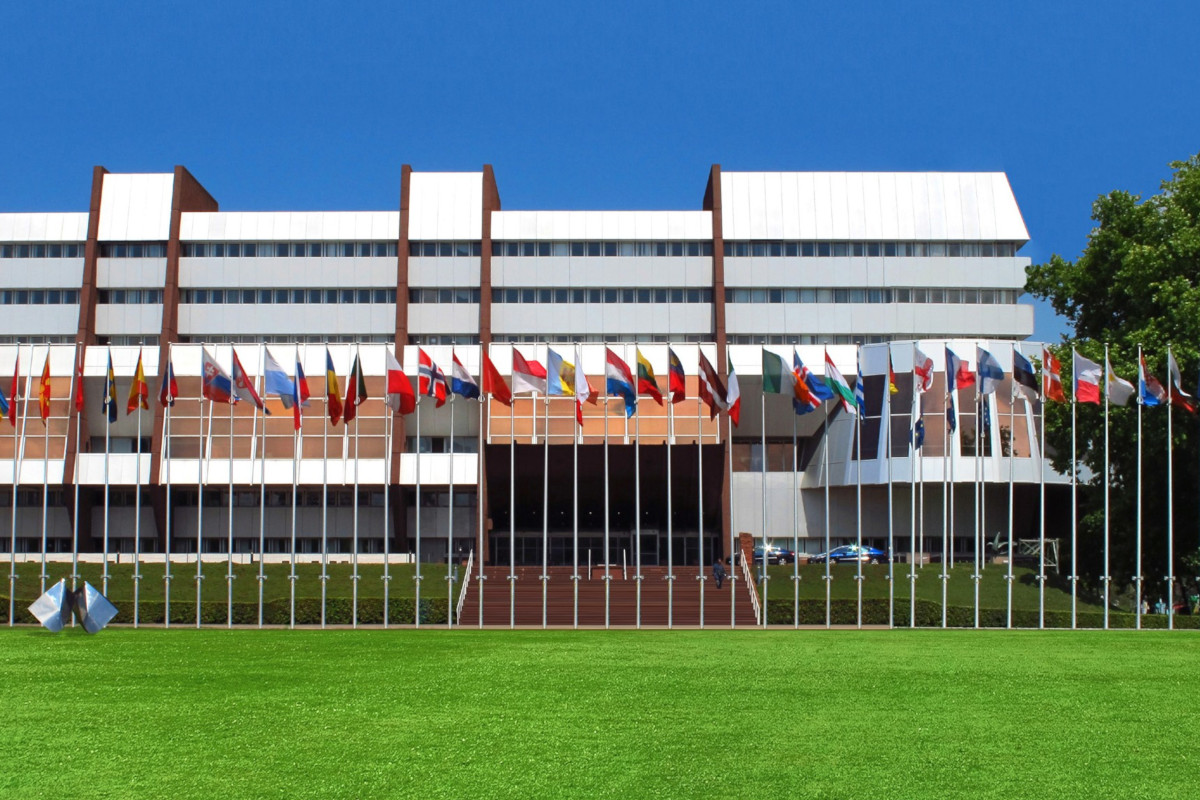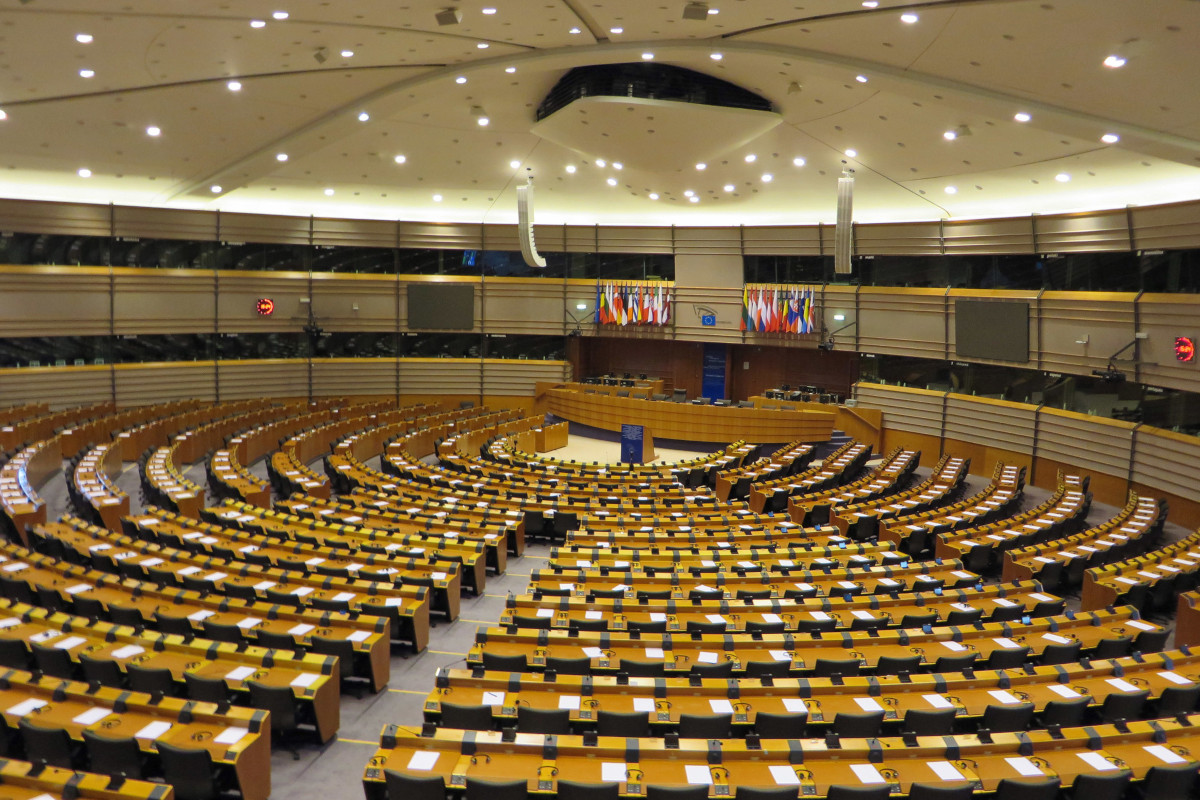Pushbacks: Legalising the illegal cannot be permitted, says Council of Europe human rights chief
Topic
Country/Region
21 October 2021
In a strongly-worded statement, the Council of Europe's Commissioner for Human Rights has called on member states to halt ongoing pushbacks and to cease any attempt to legalise the practice. The statement comes in response to a call from 12 EU member states that says all external borders "must be protected with maximum level of security" and essentially calls for the legalisation of pushbacks, EU funding for border walls, and measures to respond to "a hybrid attack characterised by an artificially created large scale inflow of irregular migrants".
Support our work: become a Friend of Statewatch from as little as £1/€1 per month.

Statement by Dunja Mijatović, Council of Europe Commissioner for Human Rights (originally published here). The letter, originally published by both Agence Europe and Politico Europe, is available here (pdf). The full-text is also reproduced below.
European states must stand up against pushbacks and the attempt to legalise them
Member states must take a stand against pushbacks at borders and clearly oppose attempts to legalise this illegal practice”, said today the Council of Europe Commissioner for Human Rights, Dunja Mijatović.
Human rights violations against refugees, asylum seekers and migrants at the borders of Council of Europe member states have proliferated at an alarming rate, especially the denial of access to asylum and returns without individual safeguards, frequently accompanied by brutal violence or even the endangerment of human life. Such practices at borders (often referred to as ‘pushbacks’) undermine legal guarantees clearly established in the Refugee Convention and European Convention on Human Rights. Practices violating the right to apply for asylum, the prohibition of torture or inhuman or degrading treatment, and the prohibition of collective expulsions, are increasingly justified as a necessary way to address emergency situations.
It is time for the governments of European states to call a halt to any legislative initiatives or policies that would result in the attempted, so-called normalisation of pushbacks and eliminate crucial safeguards to protect the rights of refugees, asylum seekers and migrants at borders.
Now is a crucial moment to speak out. Shortly after 12 member states of the European Union proposed to “adapt the existing legal framework to the new realities” at their borders, and amid growing talk of legalising pushbacks, EU leaders will come together in Brussels to discuss migration policy.
While some member states certainly face challenging situations, any suggestion that this should allow them to set aside or cherry-pick key human rights protections must be emphatically rejected.
Additionally, steps must finally be taken by all European states to hold each other to account for these violations. These often occur in the name of ‘protecting Europe’s borders’, are driven by a joint focus on deterrence, and sometimes benefit from financial or material assistance from other member states. Importantly, the lack of real solidarity in hosting refugees, asylum seekers and migrants across Europe must be tackled. Although the lack of solidarity cannot be an excuse to violate rights, it creates a powerful incentive for countries of first arrival to push people back. As such, it requires European states to face up to their joint responsibility to tackle this serious human rights problem on our continent.
Pushbacks are a violation of human rights. They cannot be legalised.
Open letter from 12 EU member states (pdf)
Margaritis Schinas
Vice-President, European Commission
Ylva Johansson
Commissioner for Home Affairs, European Commission
Copy:
Aleš Hojs
Minister of Interior of Slovenia, President of the Home Affairs Council
7 October, 2021
Re: Adaptation of the EU legal framework to new realities
Re: Adaptation of the EU legal framework to new realities
Dear Vice-President, dear Commissioner,
Recent developments at the external borders of the European Union (EU) indicate that the EU needs to adapt the existing legal framework to the new realities, enabling us to adequately address attempts of instrumentalisation of illegal migration for political purposes and other hybrid threats. Our Union has to be prepared for possible similar challenges in the future.
In her 2021 State of the Union address, the President of the European Commission Ursula von der Leyen explicitly recognised that the EU is facing a hybrid attack, its aim is to destabilise Europe, but this can never be tolerated.
We welcome the initiatives of the European Commission to address the emerging challenges. A very important aim of the recently presented EU action plan against migrant smuggling is to further develop all operational, legal, diplomatic and financial tools at the EU's disposal to respond to the instrumentalisation of illegal migration by State actors. We fully agree that it is important to set out new ways to respond to such aggression and ensure unity in protecting our external borders. We welcome the intention of the European Commission to consider strengthening the EU's legal framework to ensure a common approach to better protect the external borders and the essential interests of the EU and its Member States, while always respecting fundamental rights.1
To ensure the integrity and normal functioning of the Schengen area, all our external borders must be protected with maximum level of security. At the same time, our migration and asylum policy must be abuse-resistant. No third country should be able to make use of our asylum system for the purposes of exerting political pressure and blackmailing the EU and its Member States, or exploit the present situation in Afghanistan.
We need swift and concrete solutions and strong response to counter the instrumentalisation of illegal migration and other hybrid threats. In response to the current situation, some EU Member States adopted resolute measures at the national level. However, as these threats are targeting the EU as a whole, we need common solutions at EU level. Safeguards in the EU law allowing Member States to act swiftly and proportionally to the threat, in defence of their national security and the security of whole EU, are needed urgently. These safeguards should ensure strong protection of EU external border and provide effective measures to prevent illegal border crossings.
In its Communication of June 2nd, 2021 "A strategy towards a fully functioning and resilient Schengen area", the European Commission stated: „Building on the lessons learnt from these experiences, the Commission intends to put forward a new proposal for an amendment of the Schengen Borders Code by the end of this year. <...>. To deal with any future Schengen-wide challenges, a revised Schengen Borders Code would address situations where a serious threat, including a threat to public health, such as that created by the COVID-19 pandemic, would arise.“ When drafting these amendments, not only cases of pandemics, but also acts of instrumentalisation of illegal migration and other hybrid threats should be taken into account.
Therefore, we consider important suggesting the following:
1) Schengen Borders Code (SBC) does not sufficiently address the illegal crossings of the external land and sea borders. There are no clear rules as to what actions may Member States take in case of a hybrid attack characterised by an artificially created large scale inflow of irregular migrants, facilitated, organised and/or pushed by a third country for the purposes of exerting political pressure, or in cases of similar challenges.
2) Article 28 of the SBC addresses situations requiring immediate action in case of a serious threat to public policy or internal security. However, the measure foreseen in such cases only concerns reintroduction of internal border control, which based on recent experiences of pandemic crisis management proved to have undesirable implications. Whereas no specific measures are foreseen for protection of EU‘s external borders.
3) Recital 6 of SBC in force states that „Border control should help to combat illegal immigration and trafficking in human beings and to prevent any threat to the Member States’ internal security, public policy, public health and international relations.“ External border control consisting only of border checks carried out at border crossing points and border surveillance2 regretfully can‘t achieve the above-mentioned goals.
4) No measure, except for border surveillance, is foreseen to prevent the illegal border crossings. Article 13 of the SBC states that „The main purpose of border surveillance shall be to prevent unauthorised border crossings, to counter cross-border criminality and to take measures against persons who have crossed the border illegally.“ However, in practice border surveillance does not stop persons from attempting illegal border crossings and it would therefore be useful to complement it with further preventive measures.
5) Border surveillance is important for situational awareness and contributes to ensuring high level of security in the EU. Therefore, further development of common standards of the EU border control and in particular of the external border surveillance should be considered, with due respect for the responsibility of the Member States.
6) SBC does not foresee a physical barrier as a measure for protection of the EU external borders. Physical barrier appears to be an effective border protection measure that serves the interest of whole EU, not just Member States of first arrival. This legitimate measure should be additionally and adequately funded from the EU budget as a matter of priority. This should also apply at the Green Line, in the case of Cyprus, which does not constitute an external border.
To ensure an effective and immediate response to the instrumentalisation of the migration flows, we need European solutions without any delay. We are convinced that it is more pertinent and sustainable to proactively focus on stronger border protection, common standards for external border surveillance and prevention of illegal border crossings. We need new tools that would let us to avoid rather than deal afterwards with grave consequences of overburdened migration and asylum systems and exhausted accommodation capacities, eventually negatively affecting public’s trust in our ability to act decisively when needed.
At the same time, these European solutions should aim at safeguarding the Common European Asylum System by reducing pull factors. We should also foresee ways to stop the abuse of the asylum system and manipulating human lives by any State actors or criminal networks.
We call the European Commission to address new challenges and consider tabling relevant legislative proposals, including in the context of other amendments to the SBC that the Commission is planning to present later this year. Meanwhile, detailed discussions on the Migration and Asylum Pact and the comprehensive reform of the EU asylum system should be continued in parallel, seeking for sustainable, long term solutions based on European values.
Karl Nehammer
Federal Minister of Interior
Austria
Boyko Rashkov
Deputy Prime Minister for Public Order and Security and Minister of Interior
Republic of Bulgaria
Nico Nouris
Minister of Interior
Cyprus
Jan Hamacek
First Deputy Prime Minister and Minister of the Interior
The Czech Republic
Mattias Tesfaye
Minister for Immigration and Integration
Denmark
Kristian Jaani
Minister of the Interior
Estonia
Panagiotis Mitarachi
Minister of Migration and Asylum
Greece
Sándor Pinter
Deputy Prime Minister and Minister of Interior
Hungary
Agné Bilotaité
Minister of the Interior
Lithuania
Maria Golubeva
Minister for the Interior
Latvia
Mariusz Kamiński
Minister of the Interior and Administration
Poland
Roman Mikulec
Minister of the Interior
Slovak Republic
1 https://ec.europa.eu/commission/presscorner/detail/en/qanda 21 4907
2 The definition of „border control“ is set out in paragraph 10 of Article 2 of SBC (https://eurlex.europa.eu/eli/reg/2016/399/oj)
Our work is only possible with your support.
Become a Friend of Statewatch from as little as £1/€1 per month.
Spotted an error? If you've spotted a problem with this page, just click once to let us know.

